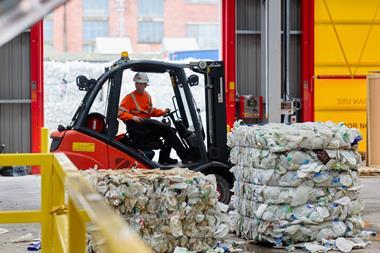Criminal proceedings could map out the future for generic medicines
The manufacturers of generic medicines must work harder to guard their good reputation. Or perhaps, manufacturers of generic medicines must work harder to counter their bad reputation. Generic medicine manufacturers have often been viewed either as benevolent angels, making formerly pricey pharmaceuticals available to the cash-strapped infirm, or copy-cat demons, making millions out of other people’s brilliant ideas. News from the UK’s Serious Fraud Office (SFO) won’t bolster the angel stereotype.
Generic medicines are copies of pharmaceutical products no longer protected by patent. Companies that manufacture these products, and organisations that represent the manufacturers, cite patient cost-saving as a major driving force, but that’s beginning to look a little shaky. Generic medicines usually cost considerably less than their branded equivalent, but they work in exactly the same way using identical active ingredients. In the UK, the Medicines and Healthcare products Regulatory Agency (MHRA) regulates all medicines on the basis of safety, quality and efficacy. The agency assesses all applications for new medicines, and follows this up with a system of inspection and testing that continues throughout a medicine’s lifetime - on and off patent.
The British Generic Manufacturers Association, which represents the interests of UK based manufacturers of generic medicines, reports that over half the medicines prescribed in England are generic, but this accounts for less than a quarter of the country’s medicine bill overall.
So with all this cost saving, it comes as a nasty shock to find that the SFO has begun criminal proceedings against nine individuals and five companies alleging conspiracy to defraud in relation to the pricing and supply of generic medicines between January 1996 and December 2000. This is by far the biggest case of its kind, exceeding all previous charges of fraud on the National Health Service (NHS). The amount involved could be as much as £150 million.
Case controller Philip Lewis, who is responsible for all aspects of the fraud investigation and for any ensuing prosecution, says he expects the case will have a significant impact on UK business culture. Whether any impact will be tied in with changes in legislation remains to be seen. At the time of writing, the accused were yet to appear at Bow Street magistrates court. All have reportedly protested their innocence, but were not making any official comment with the legal case pending.
Worldwide regulation grows increasingly thorny as applications for generics rise. In the US, the rise is blamed for a huge application backlog, but there are rumours that big pharma - which stands to lose billions of pounds in the face of generic competition - might have a part to play.
Importantly, this is not a case of little generics manufacturers versus big pharma. One of the companies charged with conspiracy to defraud the NHS, Generics, is a subsidiary of Merck. We await the findings of the investigation with interest.
Bea Perks, acting editor












No comments yet